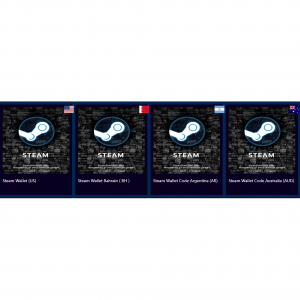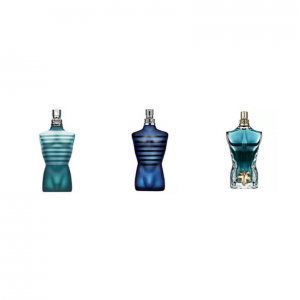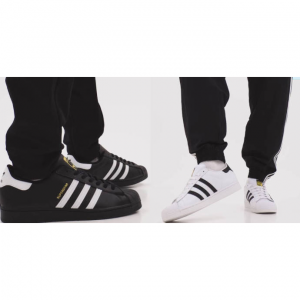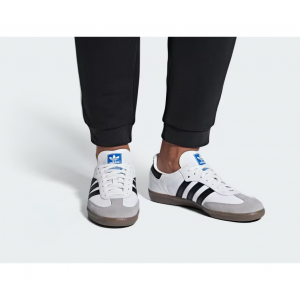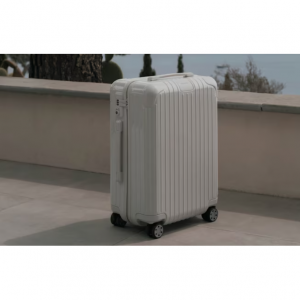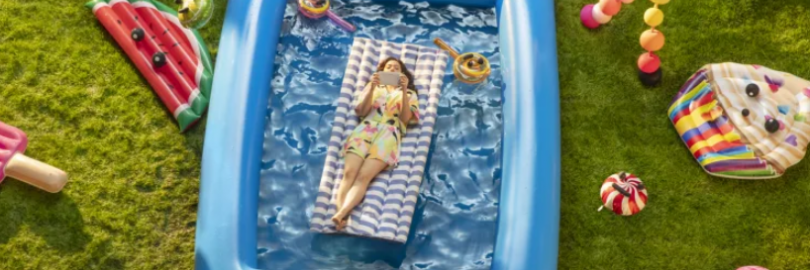
PlayStation Portal vs. Switch vs. Logitech G Cloud vs. Backbone One: Comparison and Reviews 2024
PlayStation Portal Reviews
The PlayStation Portal is an awesome way to take your PS5 gameplay into the handheld realm. As long as you’re rocking a Wi-Fi connection, you’ll be able to stream your favorite PlayStation titles on a bite-sized screen that delivers some very punchy visuals.
Released on November 15, 2023, the PlayStation Portal is a PlayStation 5 accessory that allows you to stream your existing library of games from your home console right into your hands. With an 8-inch LCD screen flanked by two halves of a DualSense controller, it has everything that you need to stream your games right out of the box - provided, of course, that you already own a PS5 and have a sufficiently strong and stable internet connection.
The PlayStation Portal requires a PlayStation 5. You need to own one to get any use out of the device. The Portal lets you remotely access your PS5, interacting with it through the screen and controls from anywhere within range of your Wi-Fi network as if you were playing with the console directly. If your PS5 is off, the Portal can even turn it on with the correct setting enabled.
The Portal is reminiscent of the Nintendo Wii U’s gamepad in that it must be tethered to a system, and it isn’t designed to be taken out of the house. The difference is that the Wii U came out 11 years ago, and it included the gamepad as part of the console instead of offering it as an optional accessory.

Specs:
|
|
|
|
|
|
|
Nintendo Switch Reviews
The Nintendo Switch is one-part handheld and one-part home console, and hopes to be the only device you'll ever need for gaming, wherever you are. The hybrid console is an undeniable success, offering up an exceptional level of handheld graphical quality, while seamlessly transitioning into a home console – though this very adaptability has required compromises on power and functionality compared to the dedicated consoles and handhelds that came before it.
The Nintendo Switch is the first step toward bridging the gap between home and handheld consoles, so it’s an incredibly significant addition to Nintendo’s family of consoles in terms of its unique offerings. It boasts a tonne of shiny new features to build upon the foundations set by previous consoles and packs some impressive capabilities in its hybrid form, especially when you take its flexibility into account.
The Nintendo Switch brings with it a central idea that can benefit literally every game, not just the select few that can use motion control or a second screen. Who hasn't at one time wanted to pack up their console and take it with them? Essentially, the Switch delivers on this hybrid idea. You'll find it a solid, premium handheld that can flip into docked mode and work as you'd expect a home console.
Six years on, following a 2019 revision of the console and the release of the Nintendo Switch OLED and Nintendo Switch Lite models, the Nintendo Switch is more popular than it's ever been, and it's apparent Nintendo has struck a winning formula with its handheld hybrid.

Specs:
|
|
|
|
|
|
|
|
|
|
|
|
Those who aren't sold on its hybridity and want that classic Nintendo handheld experience will no doubt be interesting in the compact, lighter alternative: the Nintendo Switch Lite, which offers a solely handheld Switch gaming experience. For those after something more premium, there's also the Nintendo Switch OLED, which mainly improves the portable aspect of play.
Logitech G Cloud Reviews
The Logitech G Cloud is a powerful streaming handheld, allowing you to access a variety of platforms such as GeForce Now, Xbox Cloud Gaming, and even Steam Link. You’ll also get access to PS Remote Play via the Google Play store, though you’ll need to mess with some key mapping features to get it working properly.
Most handhelds don’t even offer support for PS Remote Play, so while it’s not as flawless as PlayStation Portal, it’s great to have the option to access your PS5 through the G Cloud. Along with apps for most of the big game streaming platforms, the G Cloud lets you play standard Android mobile games, making it surprisingly versatile for its price.
Coupled with up to 12 hours of battery life, a lightweight design that clocks in at less than 500 grams, and Wi-Fi connectivity that maxes out at 800 Mbps, and you’ve got a handheld system that’s perfect for long gaming sessions. It has a large 7-inch Full HD touchscreen with a 60Hz refresh rate, precision controls that rival the best controllers, and it lets you play your favorite games in your favorite locations. It lacks 5G and doesn’t offer as much support for PS5 as the first-party Portal, but it’s a great alternative — especially if you plan to access games beyond the PlayStation catalog.

Specs:
|
|
|
|
|
|
|
|
|
|
|
|
Backbone One Reviews
The Backbone One is the ultimate mobile controller to buy in 2024. Transform your phone into the ultimate gaming console. Snap in your phone and play any game or service that supports controllers, including Xbox Game Pass Ultimate, or even stream directly from your Xbox, PlayStation, PC. No charging, no waiting for updates, no tedious setup. Uncover a new world of premium gaming in seconds.
The Lightning or USB-C-connected controller is ergonomically shaped for added comfort, and offers all the bells and whistles you’d expect. There are rear bumpers, analogue sticks, face buttons and even separate pause and options buttons, along with a few extras including a dedicated screenshot button and even a headphone jack. A rare feature, it allows you to hook up your wired gaming headset to the Backbone One for improved voice chat in compatible games.
The blend of hardware and software support is much more in-depth than the competition, offering an unrivalled mobile gaming experience for both Android and iPhone users. Hitting the bright orange button on the controller takes you to the Backbone app. The slick, well-polished app looks to be your gaming hub, allowing quick access to your favourite mobile titles without a dedicated Game folder on the home screen.
It’s also home to social features that’ll let you chat and play with other Backbone One users, and you’ll even be notified when friends begin playing so you can join them.
The Xbox-themed controller is also fully compatible with cloud gaming services like Xbox Cloud Gaming and even comes with a free trial in the box, allowing you to stream some of the best AAA titles on your iPhone or Android with full access to all game features and functionality. There’s also a PlayStation-branded version for PS gamers, complete with the black and white colour scheme of the PS5.

Overall, the Backbone One is a smaller controller of a different design entirely that slots directly into your mobile phone and, therefore, needs a compatible phone to use. It is compatible with the official PS Remote Play app, allowing you to stream games from your PlayStation console, and can also play mobile games natively.
Specs:
|
|
|
|
|
|
Where to Buy Handheld Gaming Consoles or Mobile Phone Gaming Controllers?
You can buy handheld gaming consoles or mobile phone gaming controllers at brands' official website (like Logitechg.com, and Nintendo.com). You can also go Best Buy, GameStop, Walmart.com, or Amazon.com to purchase handheld gaming consoles or mobile phone gaming controllers.
Saving Tip: If you like online shopping, don't forget to sign up at Extrabux!(What is Extrabux) , then you can enjoy up to 30+% cashback on your purchase from Extrabux! Sign-Up Bonus: Free to join it & get $20 welcome bonus! Student Benefits:As long as you are a student at school, you can get a free whole year long VIP Card worth $199.
Extrabux.com cooperates with many merchants, such as: Logitechg.com (up to 4% cashback), Best Buy (0.5% cashback), GameStop (Up to 7% cashback), Walmart (Up to 4% cashback), Sephora(4% -5% cash back), Moosejaw (5% -6% cash back), LOOKFANTASTIC (Up to 10% cash back), Giorgio Armani Beauty(10-12% cashback) )Sam's Club (Up to 15% cashback), Norton(Up to 20% cashback), Microsoft (Up to 7% cash back) and so on. You can save on buying daily necessities, fashion, beauty, electronic products, broadband installation, mobile communication, air tickets, hotels and other aspects of life!
PlayStation Portal vs. Switch vs. Logitech G Cloud vs. Backbone One
Below we will look at these four products from top to bottom. This includes their price & availability, designs, display, software, features, game library, pros & cons, and more!
1. Price & Availability
The PlayStation Portal launches on November 15 for $199.99 / £199.99, roughly twice the cost of the Backbone One PlayStation Edition Mobile Gaming Controller iPhone that launched back in July of 2022. In the box, you get the handheld and a USB-C to USB-C charging cable.
It's worth pointing out here that there is no 'dock' for this accessory like the Nintendo Switch has, and it requires you already own a PS5 in order to use it. That fact alone means you're sinking both $199 into this device and around another $500 into the PS5 if you don't already own one.
The PlayStation Portal is available on Amazon.com ($199), Gamestop.com ($189.99; $180.49 for Pros), and Playstation.com ($199.99).
The Nintendo Switch has brought a resurgence to handheld gaming, even influencing new mobile gaming techniques. There are several differences between the three Nintendo Switch models when deciding on which one to purchase. The OLED, the original and the Lite can all support the same Switch games at a handheld level, but the differences between each version can dictate gameplay and the overall gaming experience. Click here to find the difference & comparison between the OLED, the Original and the Lite.
| Version | Price |
| The Nintendo Switch | $299.99 |
| The Nintendo Switch Lite | $199.99 |
| The Nintendo Switch OLED | $349.99 |
The Nintendo Switch is available on Bestbuy.com, Amazon.com, Gamestop.com, Walmart.com, and Nintendo.com. There are also some refurbished versions available here.
The Logitech G Cloud initially launched in the US in October 2022 and is now available in Logitech’s official website for $299.99. You can also buy it on Bestbuy.com ($299.99), and Amazon.com ($269.99).
You can buy the Backbone One at Playbackbone.com, Amazon.com, and Bestbuy.com.
| @Playbackbone.com | @Amazon.com | @Bestbuy.com |
| $99.99 | $99.99 | $99.99 |
2. Display
Display: 8-inch, touch-enabled, 60Hz IPS
Resolution: 1920 x 1080
Display: 6.2-inch
Resolution: 1280 × 720 IPS (237 ppi)
Display: 7" (diagonal), 60 Hz
Resolution: 1920 x 1080 FHD (16:9 ratio), IPS LCD, 450 nits
As the Backbone One has no display of its own the screen's size and resolution will depend on your phone. The Backbone One requires a compatible phone to use.
3. Designs
To create the Portal, Sony basically cut a Dualsense gamepad in half and put an eight-inch touch screen between the two parts. The grips and general layout are unmistakably those of the PS5’s controller. It has the same white-on-black look, transparent face buttons and direction pad, and black analog sticks. The Options and Share buttons are where you expect them to be, though the PlayStation and mic mute buttons are transplanted from the controller's center to the inside edges of the left and right halves, respectively.
The DualSense gamepad's many features are here, including motion controls, immersive haptic feedback, and triggers with adaptive resistance. There’s no clickable touchpad, but the touch screen serves the same purpose. The controls feels great, because the Portal basically repurposes the hardware from an already fantastic controller.
The Portal's top holds two speaker holes, along with thin, flat buttons for power, syncing, and volume up/down. The screen's bottom edge houses a microphone hole, while the back has a 3.5mm headset jack and a USB-C port for charging.

With the Joy-Cons attached, the Switch measures 4 x 9.4 x 0.55 inches (10.1 x 23.8 x 1.3 centimeters) and weighs 0.88 pounds (around 400 grams), making it the smallest and lightest main console of this generation. The built-in display is a 720p LCD screen and is also a touch screen, with the processing handled by an Nvidia custom Tegra CPU.
Like most modern consoles, the Nintendo Switch has a fairly unremarkable design: rectangles mixed with a few softer curves, all rendered in matte plastics. You can choose the Neon color option, whose blue and red Joy-Con controllers give it a bit more personality, or the plainer all-gray version which gives a more cohesive look to the console. Either way, the centerpiece of the Switch is a gray rectangle with the display on it.
The dock, a rather dull rectangle of black plastic by default, is more interesting than its appearance would indicate. There's a space for the Switch to slide into, which contains a hidden USB Type-C connector, plus a port for the AC adapter to attach. The side and back of the dock contain a total of three USB ports for plugging in accessories and an HDMI output to connect to your monitor or TV, covered by a molded flap that aims to keep your cables tidy.
Mechanically, however, the Switch is very smart. With the Joy-Cons attached to its side rails, the console behaves like a large handheld. Alternatively, you can slide the Joy-Cons off and use them separately in tabletop mode. When you play this way, you can lay the Switch flat, or prop it up on its built-in stand. Finally, there's TV mode, where the console plugs into the included dock to play your games on a separate display. This is the only way you're able to play your games at their maximum 1080p resolution (in handheld mode, they default to 720p).
The console uses game cards for its physical media, which you insert into a covered port on the top of the system. You'll also find the power button, a 3.5-millimeter jack for attaching headphones or speakers and a volume button on the Switch's top edge.
On the bottom you'll find the USB Type-C charging port, which draws power into the console's 4,310 mAh internal battery, either directly from the included power adapter, or via the docking station, filling up in around 3 hours. If you lift up the kickstand on the back of the console, you'll also find the microSD card slot, which allows you to expand your downloadable game storage.

While the Logitech G Cloud serves a slightly different function than the Switch or the PlayStation Portal, it looks an awful lot like those two systems. A seven-inch, 1080p, 60Hz touchscreen dominates the device, encased within a white plastic chassis. On the left side, you’ll find an analog stick, a D-pad, an options button and a programmable Logitech G button. On the right, you’ll find the face buttons, another options button, the home button and another analog stick (at an offset angle).
On the bottom of the G Cloud, there’s a 3.5mm audio jack and a USB-C charging port. On the top, there’s a power switch and a volume rocker, as well as two sets of bumpers and triggers, just like you’d find on a console controller.
While the G Cloud may not have the most creative design, it’s at least utilitarian, and comfortable to hold. The ergonomic grips on the back helped it fit into your hands easily, and at 16 ounces, it’s easy enough to hold for long periods of time.

The Backbone One is aptly named due to its dog bone-shape. It features two independent sides of the controller, each roughly the size of a Nintendo Switch Joy-Con controller, held together by an expandable middle section. With a sliding and rigid backplate, you place your iPhone in its center, slotting the charging port into the Backbone One’s Lightning connector, giving traditional dual-stick-and-face-button control on either side of your horizontally-mounted smartphone. By using the Lightning connector, there’s no need to pair nor charge the Backbone One – your phone will recognise the controller automatically, while the Backbone will draw power from the phone itself. Power draw is minimal too – less than you’d see if you were using a cabled pair of headphones similarly using that Lightning port.
If you’re an Xbox gamer, you’ll be familiar with the button and stick layout here. Analogue sticks (complete with clickable buttons) are positioned asymmetrically, with face buttons in an A, B, X,Y configuration. You’ll also find a D-Pad below the left analogue stick, shoulder and trigger buttons, and a selection of menu, options and screenshot buttons, as well as an orange ‘Backbone’ button that jumps back to the accompanying app’s interface.
Ergonomically, the Backbone is comfortable to hold – albeit better suited for smaller hands. It’s extremely lightweight, weighing just 138g. It has a slightly bulbous base on each side of the controller that evenly distributes the weight and doesn’t make the unit feel top-heavy while playing. It also features a matte black finish with a slight sheen to it that unfortunately picks up a lot of fingerprints.There are two offset analog sticks in total, one on each side of the controller. They are smaller and a bit stiff, and the closest comparison I can make in terms of how they feel are the analog sticks on Joy-Con controllers. There’s a surprisingly good D-pad just below the left analog stick taking the shape of a rounded plus sign. It’s not clicky like everything else on the controller, but instead almost silent with a satisfying press.

4. Features
The PlayStation Portal, although sleekly designed, doesn't really come with much in the way of features — it's pretty barebones here. The only bright spot in terms of features is that the Portal does have a built-in microphone that can be used just like the microphone on a DualShock controller. In theory, this will let you voice chat with friends.
The most egregious error is the fact that the Portal can't access video content from streaming services because of DRM issues. Try to use Netflix on the Portal and you’ll be met with a message that says it can’t play content via Remote Play. If it came with its own version of the PlayStation platform, even a pared down one, it would at least allow you to watch content. Sadly, that isn't the case here.
Bluetooth support is another huge issue here as the PlayStation Portal will allow you to use some PS5 headphones like the forthcoming Pulse Elite Headset, but not your standard Bluetooth headphones. There is, however, a 3.5mm jack on the Portal that you can plug into directly with a standard pair of headphones. The PlayStation Portal is Remote Play all the time.
The Nintendo Switch is one-part handheld and one-part home console, and hopes to be the only device you'll ever need for gaming, wherever you are. The hybrid console is an undeniable success, offering up an exceptional level of handheld graphical quality, while seamlessly transitioning into a home console.
The Joy-Cons are fun to use in all configurations. You need spent time with them connected to the system, with them plugged into the Joy-Con grip, and with them held in each hand with nothing connecting them. All three methods are responsive and surprisingly comfortable. In particular, holding the Joy-Cons separately feels like a natural evolution of the Nintendo Wii; there is no physical tether between the Joy-Cons, and each has both an analog stick and face buttons, so the controls are much more functional than the fewer, markedly asymmetrical controls on the Wii remote and nunchuck. Motion detection feels very accurate, and you could easily aim your bow by tilting the right controller.
As for how the Logitech G Cloud works, that’s probably the most unusual part of the device. Essentially, the G Cloud is a 7-inch Android tablet with a permanent game controller attached. As such, you can access the Google Play Store and download Android games — although that’s not the primary purpose of the device. Instead, Logitech intends for users to download cloud gaming services, particularly Xbox Game Pass and GeForce Now, and stream their favorite console/PC games.
The problem, then, is that the device is limited to Wi-Fi networks. Unlike a smartphone with a controller mount, you can’t take advantage of 5G cloud gaming. Unlike a Switch or a Steam Deck, you can’t download console-quality games to take with you. As such, if you’re commuting or traveling, the G Cloud is essentially just a large screen on which to play Android games — and only offline Android games, at that.
The official Backbone app offers a slick, intuitive interface to genuinely make your smartphone feel like a console. Keeping all your Xbox (via Microsoft's streaming service), Google Stadia, and iOS titles next to each other streamlines your mobile gaming experience in a way that few other controllers replicate and all in gorgeous high quality. While game chat, groups, and screenshots aren't going to be the deciding factor for some, their smooth implementation is the cherry on top.
Backbone offers a reliable gaming hub and useful features like an in-app friend system that lets you add other Backbone users and set up voice chat rooms. The paid subscription service Backbone+ adds even more features, such as the option to connect an Android device using a Lightning-to-USB-C cable or capture gameplay at 1080p at 60FPS.
5. Game Library
Many gaming accessories serve specific purposes, catering to a user base by performing a single task extremely well. Racing wheels, fight sticks, and flight simulator rigs all have a clear reason for being. Sony gets that idea half-right with the $199.99 PlayStation Portal. It’s certainly a specific device—a handheld controller with a screen that lets you remotely play PlayStation 5 games from a powered-on console. But that's it. It isn’t a standalone gaming handheld, and it definitely isn’t a successor to the PlayStation Portable or PlayStation Vita. The PlayStation 5 Remote Play functionality works as intended, and the Dualsense-based controls feel great.
Games come either as physical game cards or as downloaded games from the Nintendo eShop. If you want to download games, the Switch has 32GB of internal storage, which is enough for a handful of games. But if you want a big library, you'll either need to take advantage of the microSDHC or microSDXC card slot, or rely on physical games, which take up less (but not zero) space on the Switch's HDD.
As for the games available, Nintendo has some of the most famous franchises in gaming history as part of its lineup. One of the most notable initial releases was the epic The Legend of Zelda: Breath of the Wild. Nintendo quickly followed this with the lighthearted platformer Super Mario Odyssey, fighting game Super Smash Bros. Ultimate, and monster-hunting RPGs Pokémon Sword and Pokémon Shield and the upcoming Pokémon Brilliant Diamond and Shining Pearl remasters.
There are also more big-budget games from beyond the Nintendo brands, such as The Witcher 3: Wild Hunt, The Elder Scrolls V: Skyrim, Overwatch, Doom (2016), Crysis Remastered and recently Apex Legends. Additionally, the Switch is home to a thriving indie game collection, represented by games such as Untitled Goose Game and Celeste.
And if you subscribe to Nintendo Switch Online, you also get access to classic NES and SNES titles, allowing you to make the most of Nintendo's high-quality back catalog of games. Alternatively, Nintendo is irregularly releasing boxed and digital remasters of its old games, such as the Super Mario 3D All-Stars collection of Super Mario 64, Super Mario Sunshine and Super Mario Galaxy. It's a fantastic way to enjoy the classics for a second time, or to try them out as a newcomer if you weren't around for the original release.
Equipped with an AMD Ryzen Z1 extreme processor, a smooth 7-inch 1080p 120Hz touchscreen with AMD FreeSync technology, and ROG intelligent cooling, the ROG Ally takes handheld gaming on to a whole different level.You can access any game that runs on Windows across all game platforms, including Steam, GOG, Xbox Game Pass, cloud gaming services, Android apps and more. Play anywhere, anytime, using handheld mode or by connecting the Ally to a TV and linking multiple controllers to play with friends. The Ally even transforms into a gaming PC by connecting to ROG XG mobile eGPU and dock - supporting mouse, keyboard, monitor, and more of your favorite peripherals.
The Backbone One is the ultimate mobile controller to buy in 2024. Transform your phone into the ultimate gaming console. Snap in your phone and play any game or service that supports controllers, including Xbox Game Pass Ultimate, or even stream directly from your Xbox, PlayStation, PC. Hitting the bright orange button on the controller takes you to the Backbone app. The slick, well-polished app looks to be your gaming hub, allowing quick access to your favourite mobile titles without a dedicated Game folder on the home screen.
6. Battery Life
The Portal’s battery life lasted a solid 7-8 hours during non-continuous play. The PlayStation Portal is a fancy handheld streaming device like that one, albeit bound to Sony’s PlayStation ecosystem. Since stand-alone remote play and cloud gaming handhelds don’t need the processing power of a standalone gaming handheld that can run games natively like the Steam Deck, Lenovo Legion Go, or Asus ROG Ally, their batteries last much longer.
For Nintendo Switch, model number: HAC-001(-01) [product serial number begins with "XKW"], the battery life is approximately 4.5 to 9 hours. For Nintendo Switch Lite, model number: HDH-001, the battery life is approximately 3 to 7 hours. For Nintendo Switch – OLED Model with a serial number that starts with “XT”, the battery life is approximately 4.5 to 9 hours. For Nintendo Switch consoles with a serial number that starts with “XK”, the battery life is approximately 4.5 to 9 hours.
Battery Life: 12+ hours (under normal playing conditions, battery life may vary based on user and computing conditions.)
Backbone One does not have a battery! Backbone One draws minimal amounts of power from the phone.
7. Pros & Cons
| Pros | Cons |
|
|
|
|
|
|
|
| Pros | Cons |
|
|
|
|
|
|
|
|
| |
| |
| |
| |
| |
| |
|
| Pros | Cons |
|
|
|
|
|
|
|
|
|
|
|
|
|
|
|
| Pros | Cons |
|
|
|
|
| |
| |
| |
|
Verdict: Which One Is Best For You?
It's going to really depend on what you're wanting to use it for. Here are some suggestions for you:
The PlayStation Portal is certainly a specific device—a handheld controller with a screen that lets you remotely play PlayStation 5 games from a powered-on console. The PlayStation Portal requires a PlayStation 5. You need to own one to get any use out of the device.
The Nintendo Switch works as both a home game console and a handheld, offering access to a remarkably strong library of excellent games on your TV at home or in your hands on the go.But the Switch isn't a perfect game console. It only reaches 1080p when the PS4 Pro and Xbox One X can both reach 4K (and the PS5 and Xbox Series X are capable of even better graphics and more impressive performance), and Nintendo saddles it with some strange and frustrating limitations. However, the home and portable experiences are incredibly fun, and there are so many games available on the system that are really worth your time, even if you've played some of them before. For these reasons, the Nintendo Switch is an Editors' Choice pick for video game consoles.
The Logitech G Cloud is the best-supported one, so a good choice if you want something that is more sturdy and with a usable warranty. Logitech G Cloud is best for streaming, has very good battery life and is comfortable to hold.
The Backbone One is small, simple, and comfortable, and a great way to add physical controls to your phone for playing certain games. It also adds a now-nearly-extinct headphone jack to your phone, which is a nice touch. It’s pricey compared with standalone Bluetooth gamepads, and the app is frustrating, but the Backbone One is one of the best ways to enjoy remote game streaming or mobile titles on your handset.
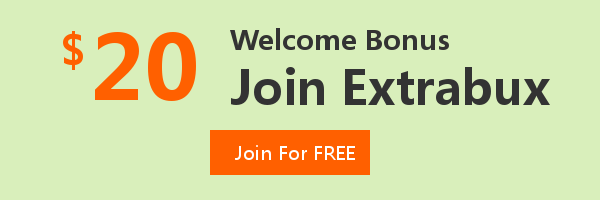
Extrabux is an international cashback shopping site, offering up to 30% cashback from 10,000+ Stores!
Microsoft, Dell, HP, Lenovo, Alienware, Acer, Asus, Samsung, BestBuy, Walmart, Staples, Overstock, QVC, New Egg, Office Depot, eBay, etc.
Join to get $20 welcome bonus now! (How does Welcome Bonus work?)
Recommendation
-

10 Best & Stylish Winter Coats for Women on NET-A-PORTER in 2024
-
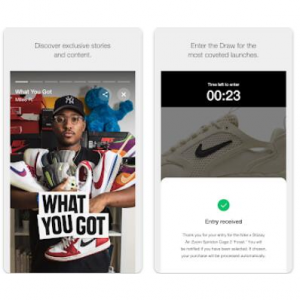
Top & Best 12 Sneaker Apps/Websites for Raffles, Releases & Restocks in 2024
-
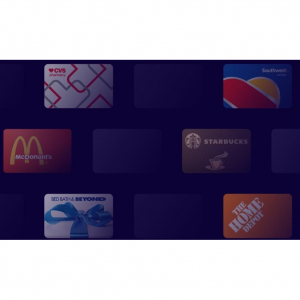
7 Best Gift Card Exchange Sites - Buy, Sell and Trade Discount Gift Card Safely and Instanly!
-

Top 9 Professional Skincare Brands for Licensed Estheticians 2024
-

13 Best Luxury Online Shopping Sites with Highest Cashback in 2024 (Coupon Code+Sale+14% Cashback)
Up to 14% Cashback!

